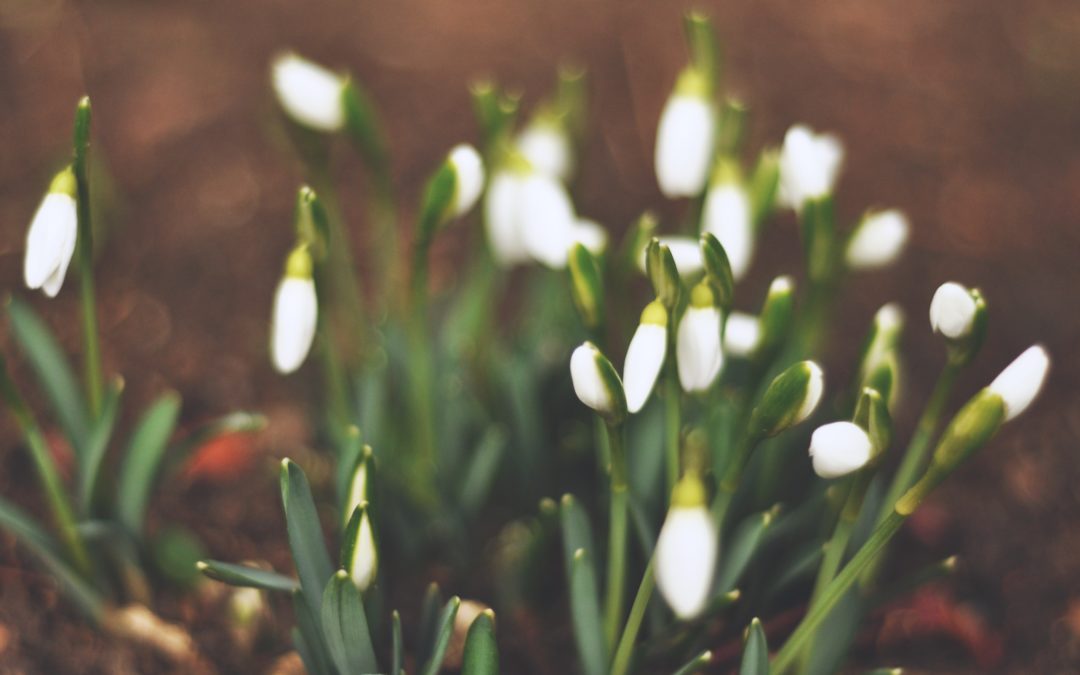In this week’s blog, guest Heather Cole writes about hope.
“Hope” is the thing with feathers –
That perches in the soul –
And sings the tune without the words –
And never stops – at all –
Emily Dickinson
January can be a dark month, renowned for its joyless “back to work” feel, often the coldest and least hopeful part of the year. An advertising campaign in 2005 even came up with a formula to work out which is the most depressing day of the year – often called Blue Monday; it was set for the third Monday of January. A combination of bad weather, financial woes, neglected resolutions and being back at work after the holidays was supposed to make for the worst day in the calendar. The formula wasn’t based on a scientific evaluation of people’s actual moods, and, of course, it is heavily based on a middle class western lifestyle. Some people may not have a job to be depressed about going back to, for example. But according to the “Blue Monday” formula, there’s not much hope around at this time of year.
This time it’s been a pretty dark month for me personally as well for various reasons I won’t go into too much. Work has been draining, as it normally is in January, with flu season and not much annual leave in sight. As a doctor, I can testify there definitely seems to be more depression and work related stress around than usual. I don’t want to “have a moan” as I’m a hugely blessed person to have my family, home, lovely church family etc.; but I do feel a bit more aware than usual of the darkness in the world, and sometimes it casts a bit of a colour-leaching shadow over how I’m feeling.
In one way however, there is a lot of hope around in January. Mostly occurring on the first, and maybe the second of the month, it comes in the form of New Years’ resolutions. Many of us persuade ourselves that somehow this year we are going to be better in some way. We’ll be fitter, more efficient, kinder, more punctual, “cleaner” eating, or just cleaner in general maybe … #lifegoals. One year, I remember resolving I was going to speak more clearly and not mumble as much. Of course, this lasted less than a week, and I went on speaking as I always do in a bit of a quiet mumbly voice because I didn’t really know how to change myself in this way. I couldn’t plan it in or monitor it. So I forgot each day and went back to accepting that I am imperfect in this area. New Years’ resolutions are often a byword for failure; we hope that we can change, but in general we cannot do it. We go on being the same as we always have.
Well, this post on hope is not very uplifting so far. Is all hope doomed from the start? Will we go on living with the darkness in the world and not being able to change it or change ourselves?
Here is where the difference between the standard “Oxford” definition of hope and true Biblical hope comes into play. The dictionary defines hope as “a feeling of expectation and desire for a particular thing to happen”. This hope is part of the human condition, I believe. We are all basically programmed to have hope, hope that things will get better, that we can keep surviving. When time passes after a devastating blow, hope naturally starts to creep back in, like the first shoots of spring. When we reach New Years’ Eve, we somehow feel that this year things will be better and we will be able to achieve more.
But more than this “natural” hope that I believe God has put into our human condition, that keeps functioning except in times of severe mental illness or overwhelmingly bad experiences, we have a hope in Christ. Our hope is based on what the Bible says about God’s plan for us, His love for us, all He has done for us and the fact that we can be united with Him forever through Jesus and His sacrifice. John Piper says that Biblical hope comes with certainty – that it is faith directed towards the future, or faith in the future tense. The Bible links faith and hope closely together in Hebrews 11:1: “Now faith is being sure of what we hope for, and certain of what we do not see.” So our hope in God both leads us to conclude that He will provide for us in this life, (giving us His Spirit to guide us and help us, making us clean from all our sins, changing us to be more like Him – much more effective than a resolution) and that He will ultimately make all the dark things of this life right – that when He comes again, all death, sickness, tears and mourning (and presumably Monday mornings) will be done away with.
It is this kind of hope, a sure and certain hope, that we need to get us through our daily life. It is much more sustaining, motivating and transforming than a mere wish that things could get better. Hope in God can be fed, even in the darkest of times, by remembering and treasuring the promises He has given us. I know I could have drawn on it more than I have during the last month, and I know with experience that my life runs better and my personality changes more into what He wants it to be, the more I read about, pray about and remind myself of the sure and certain hope that I have in Jesus Christ.
“Blessed be the God and Father of our Lord Jesus Christ! According to his great mercy, he has caused us to be born again to a living hope through the resurrection of Jesus Christ from the dead, to an inheritance that is imperishable, undefiled, and unfading, kept in heaven for you.” – 1 Peter 1:3

